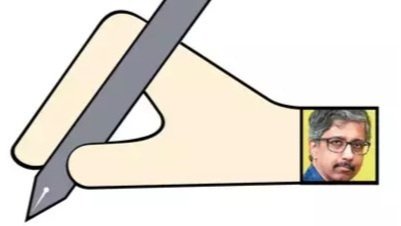Chronicle of a death foretold
Why does a city of this size, resources and claim to modernity not have a developed, centralised system that co-ordinates from a nodal point where updated information on the availability.
Sanjay Nagral
May 22, 2020, Mumbai Mirror
“How many ventilators does the city have? Where exactly are they? When someone is gasping for breath how does the ambulance decide where to go? How does one know whether a ventilator in a hospital is available or not? And how is one sure that when someone says no, that response is always credible? Whose responsibility is it to ensure that the patient is safely transported from one hospital to another? And why does one need to travel the length of the city if there is a private facility nearby where ventilators are likely to be available? And is it binding on hospitals to accept patients gasping for breath without consideration of money at least till they are stabilised? And why does a city of this size, resources and claim to modernity not have a developed, centralised system that coordinates from a nodal point where updated information on the availability of ICU beds is available?”
This hasn’t been written now. Way back in 2013, a young couple in Mumbai travelled from one hospital to another with their breathless six-month-old baby. Five hospitals turned them away and the baby died in their arms. The above lines are from a piece I did at that time. I got a lot of feedback from well-meaning citizens offering suggestions. A group from IIT-Bombay volunteered to create an app to track ICU beds. An NGO called Armaan decided to take it up as a project. As a pilot, a few private hospitals were asked whether they would be willing to share their ICU data. They refused. The initiative ended there.
In 1989, Sameer Zaveri, a 19-year-old was crossing the tracks at Borivali station when he was run over by a train. Luckily, he survived but lost both his legs. A few months later he was back to a normal life thanks to his determination and prosthetic Jaipur feet. Following this, Sameer did something extraordinary. He started a personal crusade to reduce accidents on Mumbai’s local train network as well provide immediate medical help to victims.
Mumbai’s suburban train network sees at least eight deaths every day. Many of them are avoidable. For many years, victims received no treatment at the spot. Besides other actions, Sameer filed a case in the Bombay High Court asking for medical help to the victims in the crucial golden hour. Thanks to his case, many city stations now have a clinic offering first aid. Of course, this is not enough. A soon-to-be published study from the surgical unit at Bhabha Hospital, analysing emergency treatment to railway accident victims, still shows huge deficits in care. Sameer, who is aware of this, continues to relentlessly fight on. In 2013, he was chosen as a Mumbai Hero, an initiative by this newspaper.
In 2016, I was a member of a state government committee, constituted to come up with a state-specific version of the Clinical Establishments Act, a central act to regulate and set standards for healthcare facilities in India. One of the important principles this Act sets forth is the mandatory provision of emergency care. As the only surgeon on the committee, I made a fervent plea to mandate emergency care for all trauma victims, irrespective of their ability to pay for hospitals above a certain size. We discussed the possibility of a statewide emergency service linked to the 108 ambulance facility, which would coordinate bed availability and transfers. The key to its success was an oversight by the government and participation by all. The biggest opposition came from doctors’ professional bodies in the committee. Many of them represented nursing home owners and they were worried that they would be forced to treat trauma victims. The idea was dropped.
I don’t have to tell you that in the context of the Covid epidemic several hapless individuals have died looking for a bed. The lucky ones have managed to get admitted, often after long waits. The difference this time around is that some of them are people like you and me. Social media is abuzz with ideas to deal with this. A dashboard, a centralised command, a helpline. These are unlikely to work unless all hospitals are accessible. In other words, when an amount of Rs 50,000 is not demanded at 3 am as a deposit. This can only be done by state action with access to verifiable realtime information on bed availability. Which, in turn, means temporarily taking over beds.
Maybe all these years the issue wasn’t taken seriously because it often affected people who didn’t have a voice. Perhaps those with one thought they were immune. However, this time around it’s not a poor couple from some slum or a faceless young migrant falling from a train. Many of them have unfortunately been forced to leave the city. This time it can be you or me and the state is beginning to find this too uncomfortable not to respond to.
In Garcia Marquez’s 1981 novel, a death seems inevitable to everybody and is yet not prevented. Like many of his works, it is a comment on the failure of legal and moral authority in a time of crisis. Mumbai needs that now.

